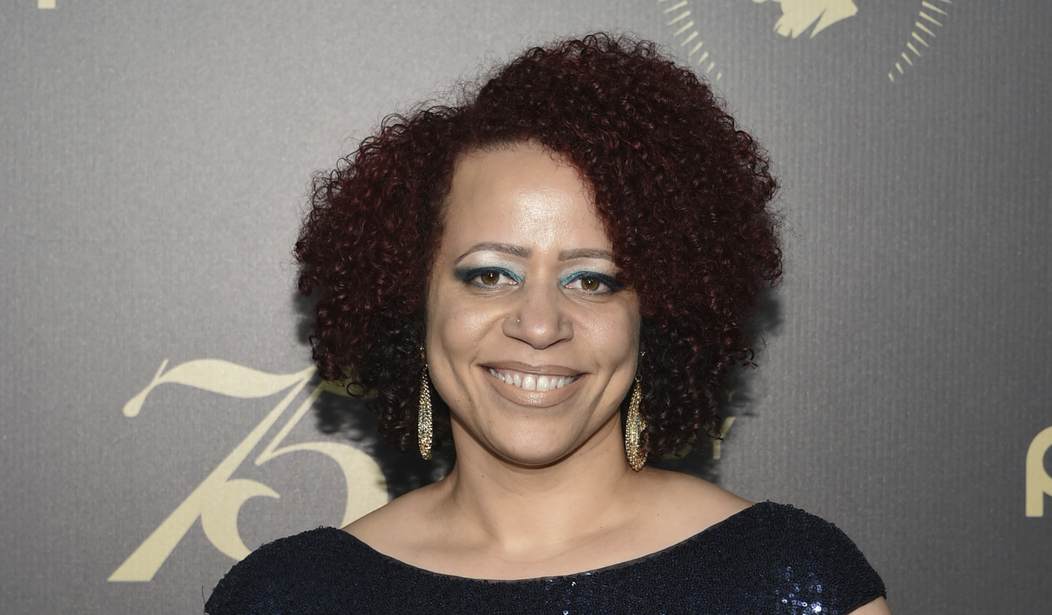Businesses are apparently dropping DEI.
But only in name. The institutions are so ideologically captured that they can't abandon the vile practices,. but the name has gotten so toxic that they have decided to rebrand it.
The same has been happening with ESG. Its reputation has tanked, but the goals must be retained.
Amid growing legal, social and political backlash, American businesses, industry groups and employment professionals are quietly scrubbing DEI from public view — though not necessarily abandoning its practice. https://t.co/unCPeYUhBh
— The Washington Post (@washingtonpost) May 5, 2024
As with so many things in America, when a good or service's gleam wears off, the powers that be decide what is really needed is a good rebranding. It is so much easier than improving the product or meeting consumer demands.
Last year, Eli Lilly’s annual shareholders letter referenced the acronym for diversity, equity and inclusion 48 times. This year, “DEI” is nowhere to be found.
In March, Starbucks got shareholder approval to replace “representation” goals with “talent” performance for executive bonus incentives. At Molson Coors, “People & Planet” metrics have displaced environmental, social and governance (ESG) goals, and the acronym DEI has disappeared altogether.
Amid growing legal, social and political backlash, American businesses, industry groups and employment professionals are quietly scrubbing DEI from public view — though not necessarily abandoning its practice. As they rebrand programs and hot-button acronyms, they’re reassessing decades-old anti-discrimination strategies and rewriting policies that once emphasized race and gender to prioritize inclusion for all.
"People and planet" sounds nice, doesn't it? It sounds much nicer than "We make good beer," all it takes is throwing some money at a consultant or two instead of years of development and marketing to consumers.
The basic problem here is that the elites' world has been ideologically captured. Human Resource departments are run by Affluent White Female Liberals (AWFLs) who are about as liberal as college students.
In 2021, 69.3% of the Human resources workers workforce were White, of which 73.1% were women and 26.9% men. Other races that concentrated a significant number of workers were Black (14.7%) and Two or More Races (6.05%).
I'm pretty sure those Black HR workers aren't admirers of Martin Luther King either. More on the wavelength of Nicole Hannah-Jones.
People are policy, and the policies these people are committed to are the deeply destructive ones currently known as "Diversity, Equity, and Inclusion."
No rebrand is going to change that.
This shifting landscape is forcing companies and consultants to adapt on the fly, with many acting preemptively to guard against the legal threats that have led some firms to recast or discard race-based initiatives. They’re renaming diversity programs, overhauling internal DEI teams and working closely with lawyers. Some are moving away from using racial and gender considerations in hiring and promotion, and toward approaches that focus more on inclusion.
To be sure, some companies have successfully fended off challenges. In April, a discrimination lawsuit against an Amazon grant program for Black, Latino and Native American contractors was dismissed by a federal court in Texas, though the plaintiffs have appealed. Pfizer and Starbucks have prevailed in court against similar legal attacks, though Pfizer modified the DEI program in question to make it race-neutral, according to court filings.
And many companies have held onto their programs since the Supreme Court ruled against Harvard and the University of North Carolina last June. Six months after the ruling, the employment law firm Littler Mendelson reported that 91 percent of the 320 executives surveyed said the ruling had not lessened their prioritization of DEI. In fact, 57 percent said they had expanded their DEI programming in the past year.
In other words, it doesn't matter to these companies that people hate what they are doing or that it is against the law; what matters is that the revolution remains on track. As with everything these days, the issue isn't really the issue; the revolution is the issue.
One fascinating thing is that, in many cases, the rebrands are not nearly as effective as Molson Coors' "People and Planet" pitch. When DEI first appeared, most people called it DIE, but then people started making fun of it and calling it "die." The rebrand to IED is similarly bad--naming your precious program after an improvised explosive device that was the most effective anti-American weapon in recent years is on-brand, though.
The people behind DEI know that they are taking a hit in public and aren't shy about telling a reporter that they intend to keep going regardless of the backlash. They are true believers, especially because there is good money in pushing this poison. It is kind of like fentanyl for the mind.
Eric Ellis, CEO of Integrity Development, a DEI consultancy, said he’s seen the “branding merry-go-round” playing out for decades, tracing back to the wake of the civil rights movement. He expects the language to keep changing in response to public attacks, especially those by high-profile figures like Elon Musk, who in January wrote on his social media platform X that “DEI is just another word for racism.”
“If every day you’re getting pummeled and there is no effective strategy to protect the brand of DEI, there’s no doubt it’s going to be hard for it to survive,” Ellis said. “We keep adjusting.”
Or, should I say, it's like Tranq for the mind, turning people into zombies.

Conservatives have been prematurely celebrating the retreat of DEI, but I have my doubts about how much progress we have made. There have been victories, for sure, but the Empire will strike back. They have the money and the institutions, and the public may not have the attention span necessary to flush the poison out of the body politic, at least in Blue states.
Ron DeSantis is making progress in Florida, and other states are following suit. But the big corporations are usually based in Blue cities and states, and most universities aren't in Florida or Texas.
So expect more rebrands and less real change for the better.








Join the conversation as a VIP Member